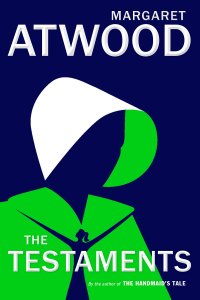Maya C. James Reviews The Unbroken by C.L. Clark
 The Unbroken, C.L. Clark (Orbit 978-0316542753, $16.99, 544pp, tp) March 2021.
The Unbroken, C.L. Clark (Orbit 978-0316542753, $16.99, 544pp, tp) March 2021.
C.L. Clark’s debut novel The Unbroken is a military political fantasy teeming with sapphic romance, treacherous espionage, and violent-but-necessary revolution. Situated in a setting reminiscent of North Africa, Clark pens a precise and horrifying tale of the Balladaire Empire’s cruel domination over the Qazāl people. Readers follow Touraine’s journey from an obedient lieutenant to a revolutionary of her own making. While the enemies-to-lover theme is certainly present, it mostly functions to accentuate the novel’s underlying concept: every empire falls, whether in the bedroom or on the battlefield.
The Balladaire Empire occupies the hot, desert Qazāl lands, profiting from their trade routes, quarries, and bodies. Princess Luca, heir to the Balladaire throne, is sympathetic to the systemic mistreatment of the Qazāl people, but balks at the idea of their self-determination. While the cane-wielding princess is incredibly intelligent, she is marred by her prejudice against the “uncivilized” Qazāl people and her desire to ascend to the throne, with the latter desire often pushing out her kinder tendencies. Even if she “loves” one of them, Princess Luca cannot help but brand an entire people as mere slurs if they disappoint her.
While Clark humanizes the rulers of the Balladaire Empire, she does not glamorize them, even showing us the error of doing so through Touraine, our stubborn and temperamental protagonist with incredible military instincts (and really incredible arms, too, according to everyone she meets). Even after earning her freedom, Touraine’s decisions are impaired by her desire to please her masters. While Touraine’s unlearning is frustratingly slow, Clark unravels Touraine’s violently reinforced beliefs with a calculated patience – her unexpected freedom snowballs into a rediscovery of the culture stolen from her as a child: religion, language, and even food are all homecomings she has been trained to abhor, but now seeks out during her espionage missions. The character development alone shows the remarkable restraint Clark has as a talented and disciplined writer – I would have loved to see Touraine rebel sooner, but the slow unraveling was far more satisfying by the novel’s end.
Despite the overwhelming evil perpetuated by the Balladaire Empire, C.L. Clark knows how to craft villains and actors that are worthy of praise. In the beginning half of the novel, for example, I never found myself rooting for just one character, as each one had some logic to their choices, and Clark’s nuanced and accurate depictions of negotiations among warring parties was another strong element of the novel. Though The Unbroken is, in a strict sense, fantastical, that seemed like an inaccurate label to describe it as by the book’s end. To be clear, this wasn’t because of poor worldbuilding or lack of magical properties (all of those were present and well done). Rather, The Unbroken is such a realistic portrayal of colonialism’s genocidal tendencies, that I nearly forgot that I wasn’t reading a historical fiction novel about Algerian freedom fighters, until magic entered the plotline.
Much like in Queen of the Conquered by Kacen Callendar, colonialism conditions its subjects to villainize their own cultures and adore the dominating class, regardless of how mediocre they might be. While colorism isn’t a central feature here in the way we imagine blackness and whiteness to be, there are clear hierarchies separating desirable populations from undesirable populations. The most interesting elements of the novel emerged when Balladairans desired to consume that which they tried to stamp out: magic and religion. The Qazāl magic in this story illuminates the unfettered desire a colonizing force has to consume and profit from its unwilling subjects. The same magic and religion that they outlawed would become their most valued resource.
This made the lustful dynamic between Luca and Touraine much more tantalizing to read. Their romance exemplified a dangerous kind of power dynamic that was both alluring and discomfiting. The lustful drama juxtaposed nicely with plenty of other queer, happy relationships throughout the novel and avoided the dreaded “bury your gays” trope. (Don’t get too attached to your favorite couples, though – this is still a rather dark fantasy).
The Unbroken also explores the psychological scars of colonialism’s genocide-like impact on generations of families. In one heartbreaking scene, we learn of the ways that parents mourned their stolen children – an entire generation of Qazāls who may one day become their executioners. I will avoid saying more than that for now, but the reverence in this scene was one that I will remember for a long time.
With that in mind, Clark’s depiction of anti-colonial violence and war narratives was remarkably precise. (Clark also writes about violent conflicts and war narratives in a separate, academic blog). Even the less politically inclined (or politically burnt-out) reader will find that these dense topics made a solid springboard for the story.
Essentially, this is an epic fantasy novel that contains the information you’d find in a well-researched monograph. Occupation is a tricky topic to approach, as it rarely ever boils down to one good side vs. one bad side – people are trapped between multiple warring forces, and C.L. Clark masterfully engages all actors and viewpoints within this complex web of power. To be clear, though, there are some obvious villains, particularly the military leaders who enforce such cruel treatment of conscripts and treat Qazāl subjects like shooting targets. Only, they aren’t the driving force of the book – that’s reserved for the relationship between Princess Luca, the occupying military forces, and Touraine.
Maya C. James is a graduate of the Lannan Fellows Program at Georgetown University, and full-time student at Harvard Divinity School. Her work has appeared in Star*Line, Strange Horizons, FIYAH, Soar: For Harriet, and Georgetown University’s Berkley Center Blog, among others. She was recently long listed for the Stockholm Writers Festival First Pages Prize (2019), and featured on a feminist speculative poetry panel at the 2019 CD Wright Women Writer’s Conference. Her work focuses primarily on Afrofuturism, and imagining sustainable futures for at-risk communities. You can find more of her work here, and follow her on Twitter: @mayawritesgood.
This review and more like it in the April 2021 issue of Locus.
 While you are here, please take a moment to support Locus with a one-time or recurring donation. We rely on reader donations to keep the magazine and site going, and would like to keep the site paywall free, but WE NEED YOUR FINANCIAL SUPPORT to continue quality coverage of the science fiction and fantasy field.
While you are here, please take a moment to support Locus with a one-time or recurring donation. We rely on reader donations to keep the magazine and site going, and would like to keep the site paywall free, but WE NEED YOUR FINANCIAL SUPPORT to continue quality coverage of the science fiction and fantasy field.
©Locus Magazine. Copyrighted material may not be republished without permission of LSFF.







